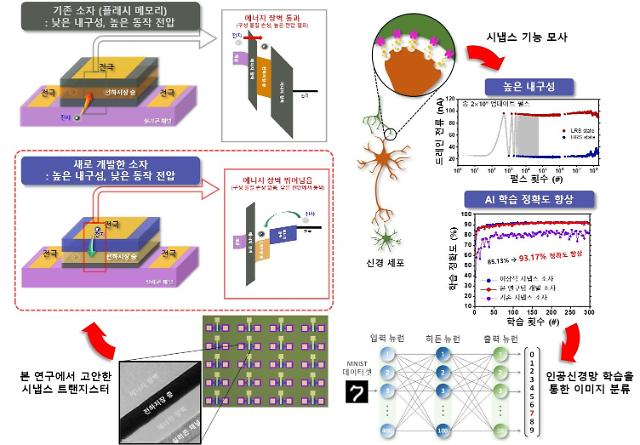
[Courtesy of KAIST]
SEOUL -- Researchers have developed a synapse transistor for a neuromorphic computing system that is highly stable and has low power consumption compared to non-volatile NAND flash memory chips that consume a lot of electricity and have a shorter lifespan.
A neuromorphic computing system is modeled after the thinking process of the human brain. A synapse transistor mimics the synapse of the human nervous system which allows a neuron to deliver electrical or chemical signals to other neurons. The computing synapse system stores and delivers data.
NAND flash uses high voltage-based Fowler Nordheim tunneling (FN tunneling) technique to store data. However, such a process damages the physical material of the chip over time. Because of accumulated damage, the flash memory has to be designed so that it can be replaceable.
The Korea Advanced Institute of Science & Technology (KAIST) said that its research team has developed a synapse transistor that can stably store large-sized data with low power consumption. Because it does not need extra circuits, the transistor can help boost the learning ability of artificial intelligence.
The research team used the synapse transistor to have AI study image data of handwritten characters and letters. When AI categorized analyzed images, it showed high accuracy of 93.17 percent, KAIST said. The transistor was tested more than 200 million times to prove its durability. Because of its high durability, the transistor is ideal for AI's online learning, which involves indiscriminative collecting and analyzing of data from the online world.
"We hope that, based on its high-durability, the newly-developed highly-stable synapse transistor becomes the key to overcoming the limitations of online training for repeated conductance updates," KAIST researcher Seo Seok-ho said in a statement on November 16.




